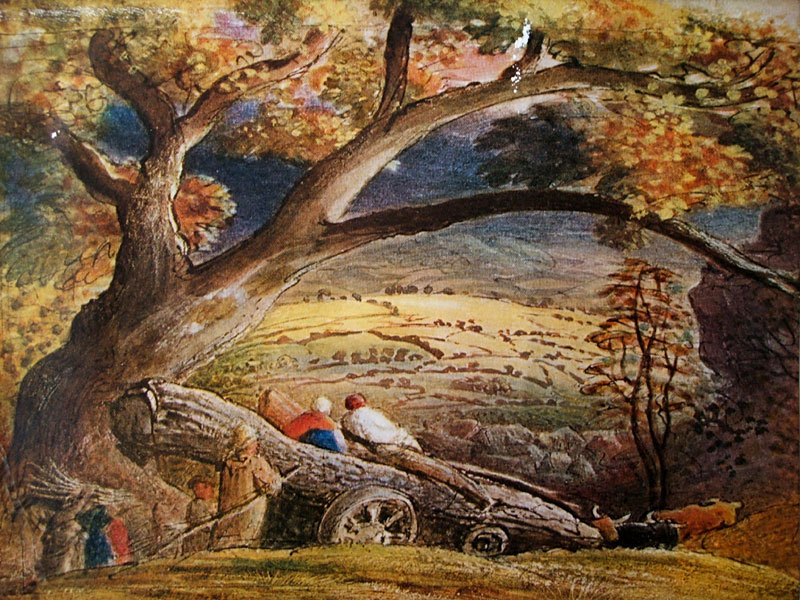.

I surprise myself by how much pleasure I live alone in. Fields where a month ago men bound up their wheat all day, and the harvesters, leaning on their instruments like flagging vines, complained of heat, while hirundines passed across the sky in great assemblies, are now a brown stubble under mist in a cool blue dusk, with sweet moon light all around, while stone-curlews cry late into the fine sharp starlight-tempered evenings.
Hop-picking goes on without interruption, as it continues warm. The whole air of the villages is perfumed by effluvia from the hops drying in the kilns. Is it this aromatic resonance that makes my brain feel pleasantly drowsy when I am on my walks, or when I am alone composing? Night dews, days calm and cloudless. I am alone and not myself, far from home and in a warm situation. The farm women gather in the pear-mains, golden rennets and golden pippins. Sweet days, golden eves, red horizons. Just at the close of day several teams of ducks fly over the cathedral fronts from the forest, headed off probably to find a congenial stream. My chance of immortality is to learn the tune of nature's quiet power.
Hop-picking goes on without interruption, as it continues warm. The whole air of the villages is perfumed by effluvia from the hops drying in the kilns. Is it this aromatic resonance that makes my brain feel pleasantly drowsy when I am on my walks, or when I am alone composing? Night dews, days calm and cloudless. I am alone and not myself, far from home and in a warm situation. The farm women gather in the pear-mains, golden rennets and golden pippins. Sweet days, golden eves, red horizons. Just at the close of day several teams of ducks fly over the cathedral fronts from the forest, headed off probably to find a congenial stream. My chance of immortality is to learn the tune of nature's quiet power.

Noche de luna llena (Night of the full moon): photo by photo by Luz A. Villa, 2007
Landscape near Shoreham: Samuel Palmer (c. 1826-1835)
Landscape near Shoreham: Samuel Palmer (c. 1826-1835)
A Warm Situation from Junkets on a Sad Planet:Scenes from the Life of John Keats: TC, 1994



6 comments:
Again, I am struck by the ending. Thanks for that.
"My chance of immortality is to learn the tune of nature's quiet power."
Otto,
Again you're right, it's the ending that makes (or breaks) it.
Here I'm guilty of making up a voice for the poet Keats, in maybe the last weeks of tranquility he would have before beginning to slowly sink into a fatal illness -- it was in these weeks he wrote To Autumn, a poem I've always thought to be "wise beyond its years" in its tuning in to nature's quiet power. (I think of it without fail this time of year.)
By the way Otto, I ran into an invisible padlock on your comment box but wanted to tell you I really like "Baboso", esp. the graph about the "man alone, man who cares" -- intensity, immediacy, presence.
The language of nature is the most beautiful way of communication. Unfortunately, very few humans can still understand it.
Lucy,
Your new post tonight reminds me you are one of those humans who can still understand it and better still express something of its quiet power in images and words.
And that is why I love your blog. You are another one.
Post a Comment